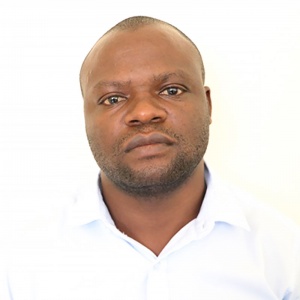
By Chrispus Mayora
The coronavirus (COVID-19) pandemic continues to ravage countries, especially in the West, Europe and Asia. Beyond health, economies have been hit hard as well. Some authors have termed COVID-19 “a global health crisis that has turned into a global economic crisis”.
In fact, when COVID-19 is contained, its real impact will be recorded across all spheres of life. Africa has not been spared either, although the gravity of the epidemic has been less compared to earlier doomsday predictions. In Uganda, COVID-19 has largely been contained (at least for now) — thanks to the team at the Ministry of Health and all health professionals and volunteers involved at all levels, all under the leadership and command of President Yoweri Museveni.
The timely preventive measures announced by the President and implemented by an assembled team of professionals from various fields, were critical in slowing down the spread and curtailing a community transmission phase which would have been worse for Uganda. The President has also rallied the population behind the fight and made everybody appreciate why the measures were necessary. The President’s experience regarding epidemics is unrivalled, dating back to the days when HIV/AIDS was at its peak.
Something else has attracted my attention in the Uganda COVID-19 fight: the untapped capacity that Ugandan universities have to contribute to Uganda’s development and social transformation agenda. To make this argument, let’s reflect on two issues:
First, the composition of the National Task Force (Technical). For starters, the NTF, among other members, has at least 17 professors from Makerere University alone, from multiple disciplines, leading several sub-committees or participating in several subcommittees. This team has provided technical and policy guidance in the fight against the coronavirus. The School of Public Health, under its dean, Prof. Rhoda Wanyenze, has demonstrated that public health continues to be central to human survival. This is part of the immense capacity housed in our local universities.
Secondly, COVID-19 has exhibited a ‘latent’ capacity to innovate, across various quarters. Four examples at Makerere University are worth noting: First, KIIRA Motors in collaboration with team from the College of Health Sciences (CHS), College of Engineering (CEDAT) and the Resilient Africa Network (RAN) at Makerere University, has embarked on developing a low-cost ventilator to help in the Intensive Care Unit (ICU).
This will significantly reduce costs and increase access to this service.
Second, a Rapid Diagnostic Test Kit for COVID-19 is being developed by a team led by Dr. Misaki Wayengera, at CHS, who initially developed an Ebola RDT Kit. The kit will mitigate the time and costs of PCR tests. Both the ventilator and the RDT innovations are at the prototype stage, and could be available in the coming months.
Third, a team at RAN under the coordination of Prof. William Bazeyo has designed an EpiTent to help in emergencies and epidemics. The EpiTent has already been approved by the World Health Organisation (WHO).
Fourth, one of the CHS laboratories led by Prof. Moses Joloba has received accreditation from Government to start testing for the coronavirus, and will contribute significantly to the fight against the coronavirus. Beyond the COVID-19 pandemic, Ugandan professors have made their mark on other global pandemics. The global fight against HIV/ AIDS right from the 1980s involved names such as Prof. Nelson Ssewankambo, Prof. David Sserwadda and Prof. Moses Kamya, among others. These are but a few examples in the area of public health and infectious disease, but the list is long if we reflected on other fields of scholarship.
The above examples, demonstrate that universities can contribute significantly to addressing not only the current society challenges, but also tomorrow’s. Universities, are not only symbols of national pride, but can also be a hub for a nation’s intellectual and innovative capacity.
Universities can play a crucial role in Uganda’s growth and transformation path. Universities should not only be confined to the dissemination of knowledge through teaching, but should also invest in creation of new knowledge and expansion of the existing knowledge base through research and innovation. Most importantly, universities will become even more relevant if the knowledge and innovation they produce addresses local and global society challenges. This, however, requires deliberate and strategic investment in universities by the Government and development partners.
The Government has recently partnered with Makerere University to establish a research and innovation fund (MakRIF) and committed five years of funding. This is a positive gesture in the context of harnessing the immense capacity at Makerere University. A framework for other universities to benefit from similar initiatives should be explored.
The writer works with the Knowledge Management & Evidence Response Unit (KERU), Makerere University School of Public Health
| Attachment | Size |
|---|---|
| COVID-19: Universities have capacity to contribute to national development (209.88 KB) | 209.88 KB |


